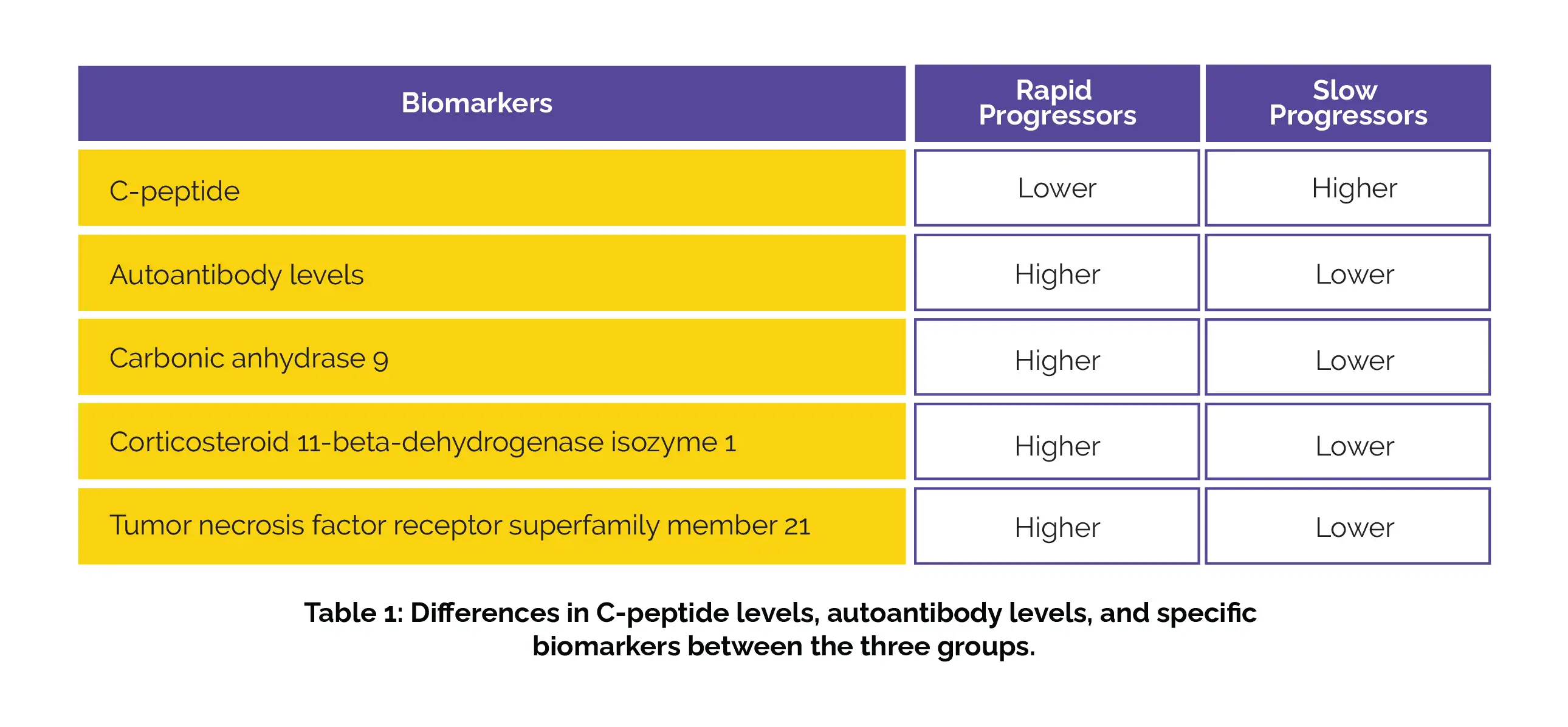Categories
Change Password!
Reset Password!


Recognizing the disease progression biomarkers could reveal underlying mechanisms and offer prognostic insights, aiding in the personalized management of type 1 diabetes (T1D) in children.
According to a novel study published in BMJ Open Diabetes Research & Care, several analyzed biomarkers combined failed to differentiate the rate of progression among children with newly diagnosed type 1 diabetes, despite the differences in individual proteins. Only one marker stood out, coxsackievirus B-adenovirus receptor (CAR) which exhibited significant alteration across time and group effects, showing a substantial increase in the rapid progression cohort. Nonetheless, certain markers may be useful in predicting the decline of the C-peptide, which could be valuable for deciphering the pathogenesis of type 1 diabetes.
Per Lundkvist et al. explored the biomarkers predictive of either a fast or slow progression of new-onset type 1 diabetes in pediatric patients (aged less than 18 years) in their recent retrospective cohort study.
Overall, 46 T1D children were included at diagnosis and followed until complete insulinopenia (C-peptide less than 0.03 nmol per L). They were divided into three groups:
The proximity extension assay (PEA) was used to evaluate the numerous biomarkers at the starting and follow-up periods. The variations in multiple biomarkers in the rapid, slow and healthy groups at the baseline are mentioned in the following table 1:

A change in 25 proteins over time was also observed regardless of group. Notably, the coxsackievirus B-adenovirus receptor (CAR) demonstrated a progressive increase over time among the rapid progressors group. A total of 81 proteins exhibited differences between T1D children and the control group. However, the principal component analysis plot failed to differentiate between the three groups, as concluded.
BMJ Open Diabetes Research & Care
Predictive biomarkers of rapidly developing insulin deficiency in children with type 1 diabetes
Per Lundkvist et al.
Comments (0)